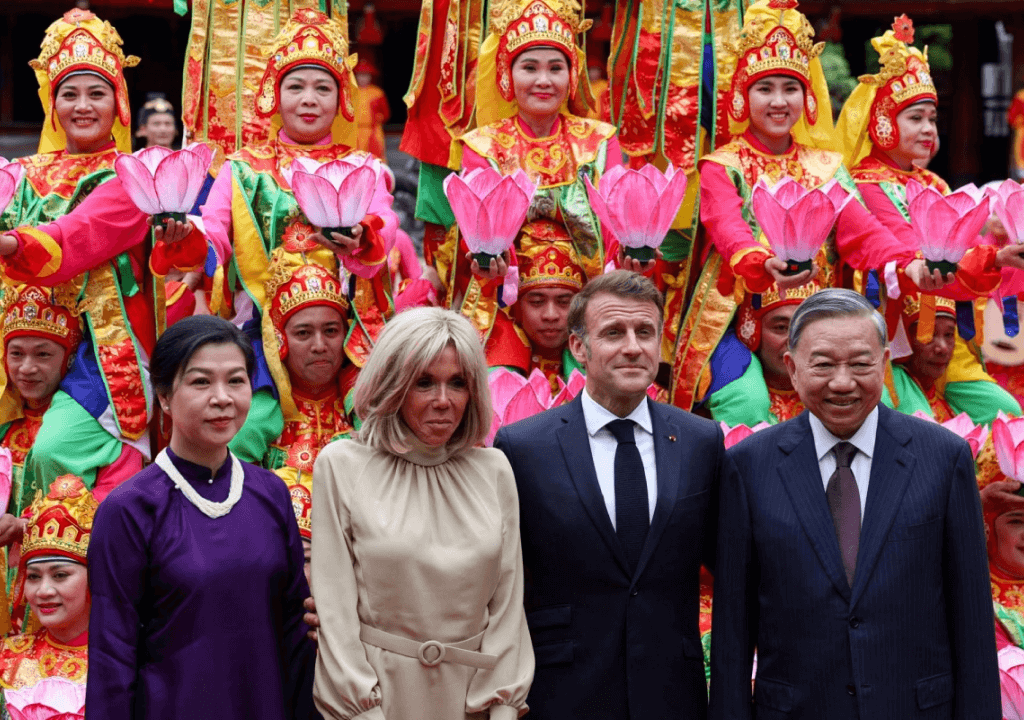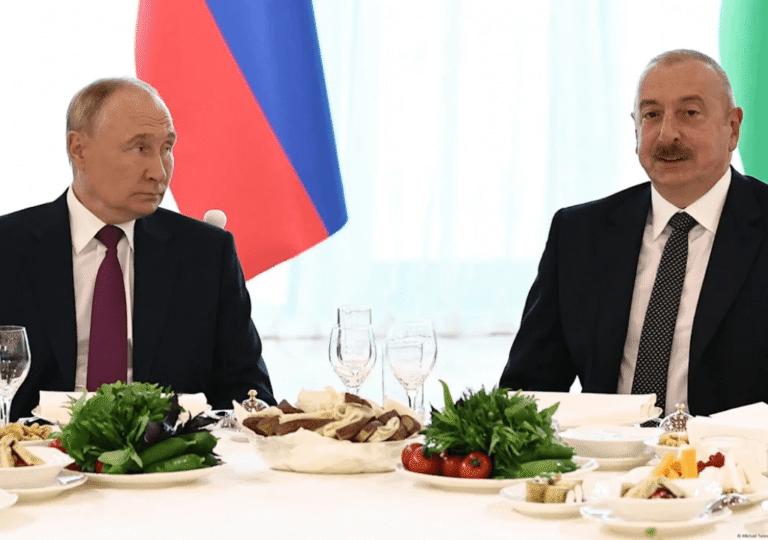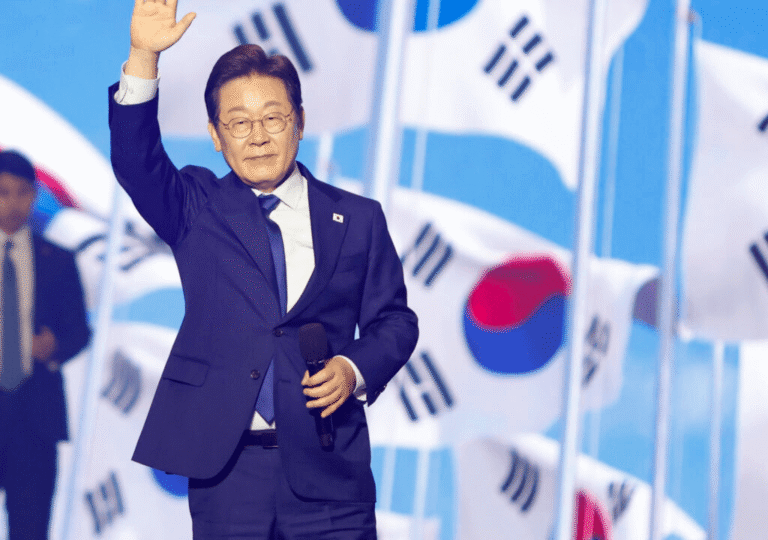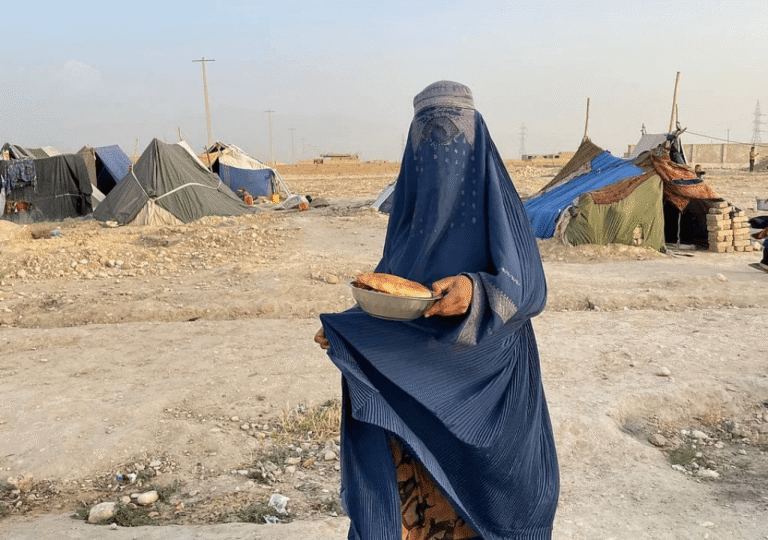French President Emmanuel Macron’s recent visit to Hanoi—though momentarily overshadowed by controversy surrounding his and the First Lady’s conduct during their flight—carried significant geopolitical weight. By choosing Vietnam as the first stop on his Southeast Asia tour, Macron made clear his intent to strengthen the European Union’s strategic presence in a region increasingly shaped by the U.S.-China rivalry. In his meeting with Vietnam’s top leader, To Lam, Macron moved quickly to tap into the unease stirred by former U.S. President Donald Trump’s trade wars and China’s rising assertiveness. As Vietnam navigates this complex geopolitical landscape, France—its former colonial ruler—is reemerging as a potential partner, offering Hanoi a route to deeper integration with Europe and a more balanced strategic position.
France Deepens Engagement with Vietnam
Despite a turbulent colonial past, France and Vietnam now enjoy a strong and steadily deepening relationship. The two nations are bound by a Comprehensive Strategic Partnership — the highest level of diplomatic engagement recognized by Hanoi — making France the only European country to hold this status. As France and the broader European Union seek alternatives to China in manufacturing and trade, their diplomatic ties with Vietnam have grown increasingly robust. President Emmanuel Macron’s recent visit — the first by a French head of state in nearly a decade, following trips by other European leaders — underscores this renewed engagement.
Macron framed France as a familiar, safe, and dependable partner, a quality he said is especially valuable in today’s uncertain geopolitical environment. France is positioning itself as a strategic ally for Vietnam — aligned with the United States but not perceived by Beijing as openly confrontational — offering both political partnership and access to the European market.
During his visit to Hanoi, President Emmanuel Macron oversaw the signing of several high-profile economic agreements, including a landmark deal for VietJet, Vietnam’s budget airline, to purchase 20 Airbus A330-900 wide-body aircraft. Airbus already supplies nearly 90% of Vietnam’s commercial aircraft fleet, according to aviation analytics firm Cirium. The agreement went ahead despite reported pressure from the United States urging Vietnam to shift its procurement toward American manufacturers.
According to Vietnamese state media, Macron and Defense Minister Phan Van Giang jointly witnessed the signing of 14 cooperation agreements. As reported by Reuters, the deals span a wide range of sectors, including nuclear energy, defense, rail and maritime transport, Airbus Earth-observation satellites, and vaccine production with pharmaceutical giant Sanofi.
Vietnam Balances Super Power
Caught between the competing ambitions of the United States and China, Vietnam has long maintained a careful balancing act — cultivating ties with both powers while steering clear of firm alignment with either. But as this tightrope walk becomes increasingly precarious, Hanoi is turning to Europe not to disrupt the balance, but to help stabilize it. Closer engagement with the European Union could offer Vietnam a way to ease the mounting pressure of great power competition. At the same time, Europe is showing growing interest in expanding its strategic footprint.
The EU is already Vietnam’s largest trading partner in the region and its 17th largest globally, with bilateral trade rising 13% to €67 billion in 2024, according to the European Commission. Many in the West now see Vietnam as a viable alternative to China — offering low-cost labor, political stability, and access to key Asian markets. In return, Vietnam views Europe as an attractive partner with strong purchasing power and a more consistent trade approach.
While the U.S. has temporarily suspended steep tariffs, its policy unpredictability remains a concern. In April, Washington announced a 46% tariff on Vietnamese exports, with implementation delayed until July. Meanwhile, Vietnam has pledged to lower tariffs on American imports and approved several major projects linked to President Donald Trump, including a $1.5 billion golf resort near Hanoi. Vietnam Airlines is also reportedly considering an order of over 200 aircraft from Boeing.
China — with its longstanding pattern of pressuring Vietnam over territorial and trade issues — is likely to interpret Hanoi’s growing engagement with Washington as a challenge. This deepening alignment could invite renewed tensions with Beijing, further complicating Vietnam’s already delicate diplomatic position.
Is France a good option?
In terms of trade, absolutely — France offers a strong, stable market that also demands affordable goods, without the heavy political pressure seen in other relationships. While trade remains central to French President Emmanuel Macron’s recent visit, security cooperation is quickly gaining importance.
Vietnam, historically reliant on Russian arms, is now seeking to diversify its defense partnerships. Moscow’s full-scale invasion of Ukraine severely damaged its credibility as a reliable arms supplier. In response, Hanoi is turning to partners like France, which already maintains strong defense relationships with countries such as India.
At a joint press conference, Macron emphasized that the partnership with Vietnam involves “Reinforced defense cooperation”, highlighting newly signed agreements in both defense and space. Vietnam’s President Luong Cuong echoed this sentiment, noting the deal includes intelligence sharing, cybersecurity collaboration, joint work on armaments, and anti-terrorism measures.
For Vietnam, France may well represent the ideal “Third way” — a dependable, non-aligned partner that supports both economic and strategic needs without forcing Hanoi into the orbit of either the United States or China.








